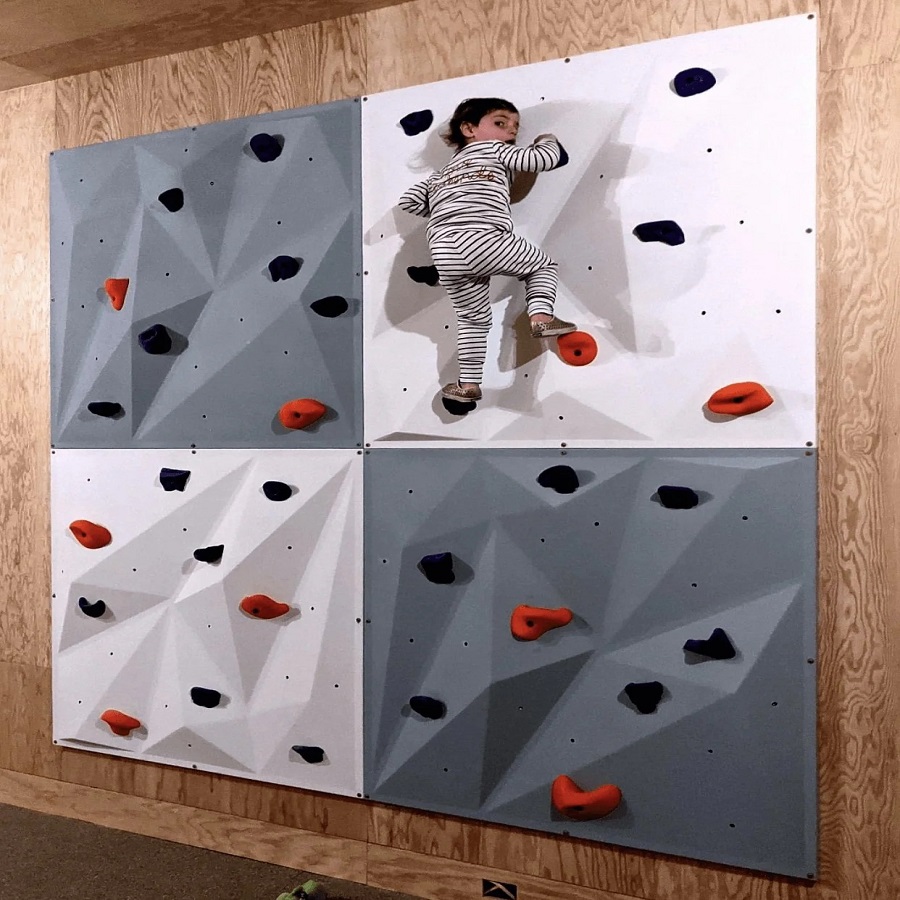Physical Health Benefits of Rock Climbing
Rock climbing offers a multitude of physical health benefits of rock climbing that cater to overall wellness. Engaging various muscle groups, it presents a unique blend of strength, endurance, and flexibility training that is hard to match in other activities.

Full Body Workout
Rock climbing is an exceptional full body workout. It requires the use of major muscle groups in the arms, legs, back, and core. Each climb is a dynamic exercise session, as you pull, reach, and step your way up the wall or rock face. This consistent and comprehensive muscle engagement can lead to increased muscle tone and strength over time.
Increased Flexibility and Agility
Flexibility and agility are essential when navigating through different climbing routes. Rock climbing stretches your body’s capabilities, extending your reach, and challenging your balance. As you adapt to various climbing positions, your body becomes more supple and responsive. The benefits of rock climbing in this area not only support your performance on the wall but also enhance mobility in your daily life.
Cardiovascular Fitness
Rock climbing is also a vigorous cardiovascular workout. It gets your heart pumping and increases your endurance. Much like interval training, it often involves bursts of intense activity followed by periods of rest. The cardiovascular benefits of rock climbing contribute to a stronger heart, better circulation, and improved stamina.
Mental Health Benefits
Rock climbing is not just beneficial for the body but also the mind. As much as it’s a physical challenge, it’s equally a mental workout. Climbing requires presence, awareness, and a level of calm that can translate into everyday life, yielding several mental health benefits.
Stress Reduction
The focus demanded by rock climbing makes it an excellent stress-reliever. When you climb, you are in the moment, a state often referred to as ‘flow’. This state can help to quiet the mind and reduce stress levels. The natural high from the physical exertion also releases endorphins, which are natural mood boosters that fight off stress.
Improved Focus and Concentration
Rock climbing requires careful planning and intense concentration. Each move is deliberate and requires careful thought. This improved focus during climbing sessions can enhance your ability to concentrate in other areas of your life, leading to increased productivity and attention to detail.
Emotional Resilience and Overcoming Fear
The act of climbing can be a metaphor for overcoming challenges in life. It teaches you to face fears head-on and push through them. The sense of accomplishment you feel when you reach the top can build emotional resilience and boost your confidence in handling difficult situations beyond the rock face.
Social and Community Aspects
Rock climbing not only bolsters physical and mental health but also enriches social interactions and community involvement. The shared experiences and collective goals inherent in rock climbing contribute to its social benefits.

Building Trust and Teamwork
Engaging in rock climbing often involves partnering with others, which naturally fosters a trust-based relationship. Climbers must rely on each other for safety and support throughout the climb. This reliance builds a strong bond and sense of teamwork as partners communicate and collaborate to navigate routes successfully.
Social Interaction and Making New Friends
The rock climbing community is known for being welcoming and diverse. Participating in climbing activities can introduce you to new people, broadening your social network. The climbing gyms and outdoor climbing spots are social hubs where climbers of all levels come together, share tips, and encourage each other. Such interactions promote a sense of belonging and often result in lasting friendships.
Enhancing Balance and Coordination
Rock climbing excels in boosting balance and coordination. This sport requires climbers to maintain their center of gravity over their base of support constantly. As climbers reach, step, and navigate their way up, they develop a keen sense of balance. This is crucial not only for the climb but also benefits daily activities. Climbers learn to coordinate their hand and foot placements carefully. This coordination is often intricate, involving complex moves that become second nature over time.
Improved balance and coordination from rock climbing can spill over into other sports. These skills are transferable and advantageous for activities like surfing, yoga, and even dance. Additionally, better balance and coordination can reduce the risk of falls and injuries. This makes rock climbing an excellent activity for people of all ages. Climbers young and old can gain from enhanced proprioception. This is the body’s ability to sense movement, action, and location. It’s clear that the benefits of rock climbing extend beyond the rock face, as they nurture the body’s agility and grace in motion.
Skill Development and Learning
Rock climbing is more than just a physical challenge; it is also a mental game that encourages skill development. By tackling various climbing routes, climbers sharpen their cognitive abilities and learn valuable life skills.
Problem Solving Skills
As climbers face new climbs, they are presented with real-time problems to solve. Which handhold is best? Can that foothold support a dynamic move? These questions require quick, on-the-fly thinking. Climbers develop problem-solving skills by analyzing routes, experimenting with different strategies, and adjusting tactics as needed. These problem-solving abilities extend to everyday life, enhancing decision-making skills.
Goal Setting and Achievement
Rock climbing naturally incorporates goal setting. Climbers often set incremental objectives, such as reaching a particular hold or completing a specific route. They learn the value of setting realistic goals and the steps needed to achieve them. Meeting climbing goals provides a sense of accomplishment, and these achievement strategies can be applied to personal and professional life. Climbing teaches the importance of perseverance and dedication, qualities essential for reaching any goal.

Adventure and Outdoor Exposure
Engaging in rock climbing offers more than just physical and mental rewards. It delivers a unique sense of adventure and outdoor exposure.
Connection with Nature
Rock climbing, by its very nature, encourages a deep bond with the outdoors. Climbers often find themselves scaling natural rock formations, surrounded by breathtaking scenery. The tactile sensation of rock under hands and feet fosters a grounding experience. This connection with nature can be profoundly soothing. It can offer a break from the high-speed digital world, bringing a sense of peace and tranquility. Inhaling fresh, clean air and being present in the wilderness can enhance wellbeing on multiple levels.
Exploring New Destinations
Rock climbing can also serve as a gateway to exploring new destinations. Climbers are often drawn to stunning locations that offer challenging ascents. This pursuit can take you across the country or around the globe, discovering hidden gems and picturesque landscapes. Exploring these locations fosters a spirit of adventure and can satisfy the wanderlust in many climbers. Each new climbing trip is an opportunity to immerse oneself in different cultures, environments, and communities. It’s not just about the ascent; it’s about the journey and the new experiences along the way.
From connecting with nature to discovering uncharted territories, the benefits of rock climbing include rich adventures and memorable outdoor experiences that resonate beyond the physical aspects of the sport.
Rock climbing is a physically and mentally demanding activity that offers numerous benefits, ranging from physical fitness to mental resilience. Whether practiced indoors at a climbing gym or outdoors on natural rock formations, it provides a unique combination of challenges and rewards.

